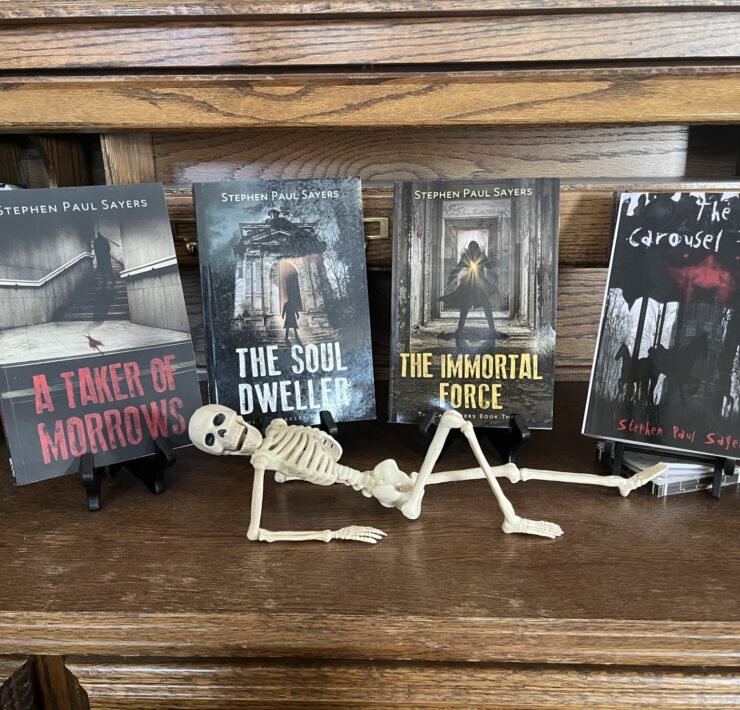FUSUS: City Council will take another look

Prosecuting attorney urges city to purchase the video system.
The crime-fighting Fusus video sharing platform that the Columbia City Council narrowly voted not to purchase — following nearly four hours of public comment in November — will return to an upcoming council agenda with an ordinance that will outline First Amendment and non-discrimination protections.
The Fusus system, presented and championed by Columbia Police Chief Geoff Jones last fall, now has Boone County Prosecuting Attorney Roger Johnson calling for its purchase and implementation. Johnson’s letter outlines the important role video plays in combatting crime as well as exonerating potential suspects.
At the February 20 city council meeting, Ward 4 city council member Nick Foster made a motion directing the city manager to bring the council an ordinance to purchase and implement the Fusus system. His motion, unanimously approved by the council, was spurred by a Dec. 22, 2022, letter from the prosecuting attorney to Mayor Barbara Buffaloe and Chief Jones, who asked that the council reconsider its decision not to purchase the video software.
The Fusus platform would allow businesses to share live-time video with police in the event of a crime. Geoff said police are primarily interested in cameras with a public-facing view, such as those that have a street view. Currently, investigators have to request video footage, and that process can be time-consuming.
Opponents of the Fusus system aired a variety of concerns, with some arguing that the system would be an invasion of privacy or could be used to target minorities. Geoff assured those gathered for the Nov. 22 meeting that his officers do not have time or the need to use video feeds for surveillance, and that the police department’s policy would prohibit accessing cameras for live-feed views except in the case of a major event, such as an active shooter at a school.
Fusus advocates — primarily downtown businesses and business leaders — lauded the police chief’s proposal as an important addition to responding to, investigating, and preventing crime. Nickie Davis, executive director of the downtown Community Improvement District, says her support for the proposal hasn’t waned since she spoke in favor of the video software system in November.
“It’s a constant issue,” Nickie says. “It’s definitely still needed.”
In addition to The District, The Downtown Leadership Council, the University of Missouri, and most of the major players in the downtown area have expressed support.
The prosecuting attorney said in his letter that many murders and other violent crimes in Columbia have been solved and prosecuted as a result of having access to surveillance video captured before, after, or during a crime.
“Video evidence has become a critical part of ensuring reliability of prosecutions. While footage in some areas of town is often available, collecting it requires substantial police manpower, and sometimes business personnel with access to video are not immediately available,” he wrote. “Having the ability to obtain video quickly after a crime would help ensure police are able to respond before witnesses and suspects disappear. It also reduces the risk that video will be deleted or overwritten before it can be recovered.”
He continued: “I believe that having fast, reliable access to videos is a critical part of reducing violent crime in our community,” noting the importance to business and tourism, as well as citizens’ lives and safety. “Moreover, as prosecutor, my goal is not only to hold the guilty accountable but also to ensure the innocent are not punished. More than once during my career, surveillance video has been able to prove that a former suspect was not guilty or was elsewhere during a crime.”

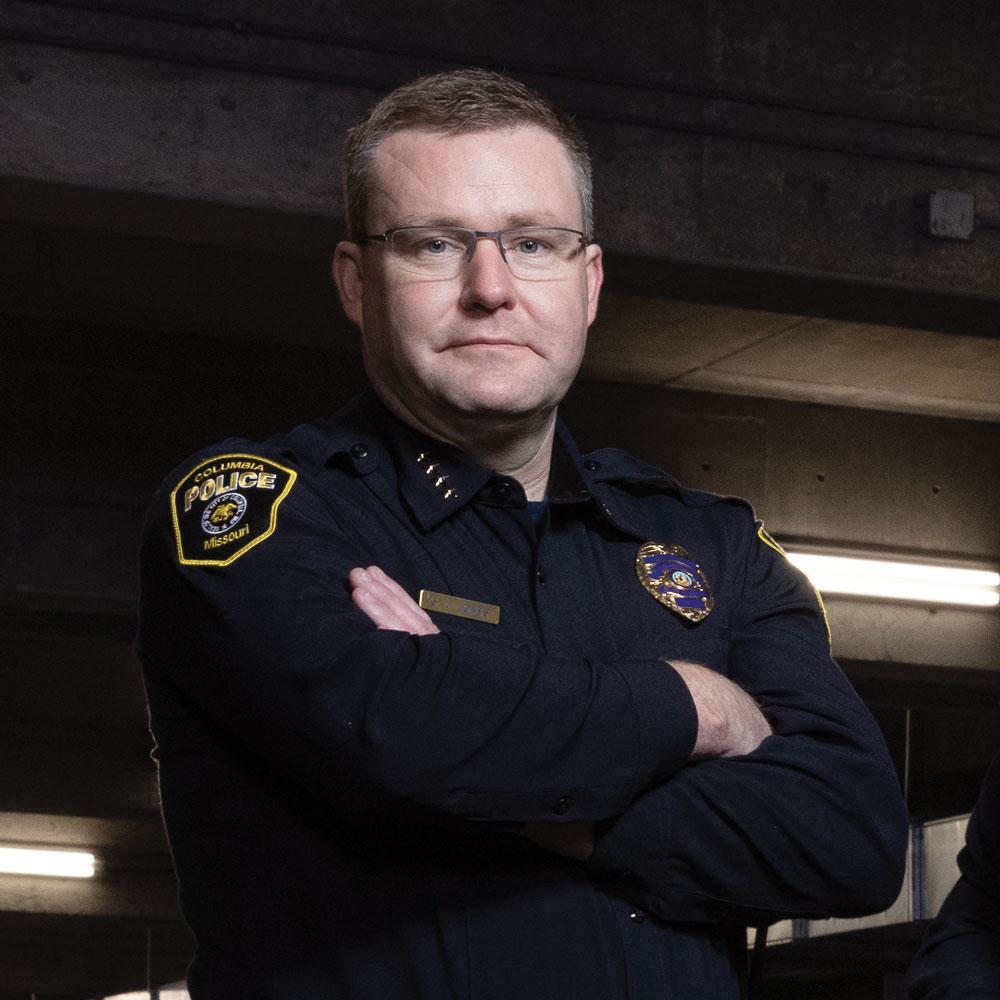

Johnson’s letter concludes by saying that video alone is almost never enough evidence to prosecute a crime or identify a suspect, but it is “such a crucial part of our efforts against crime and our truth-seeking mission that I encourage the council to reconsider its vote on the Fusus system.”
Geoff said the video software system is also a matter of efficiency.
“This isn’t about getting things that we don’t already have access to,” he said prior to the Nov. 22 council meeting. “This is more efficient. Officers spend a few hours a week on average, trying to get video from different businesses, and the person working it may not know how to use it or how to download it, so it may be days before we get a video.”
In action at the Nov. 22 meeting, Ward 2 Councilmember Andrea Waner, Ward 3 Councilmember Roy Lovelady, Ward 1 Councilmember Pat Fowler, and Ward 4 Councilmember Nick Foster voted against making the $315,000 purchase. Councilmembers Betsy Peters (Ward 5) and Mitt Pitzer (Ward 6), along with Mayor Buffaloe, voted in favor of the purchase request.


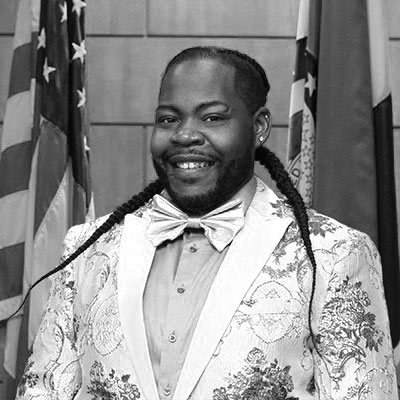
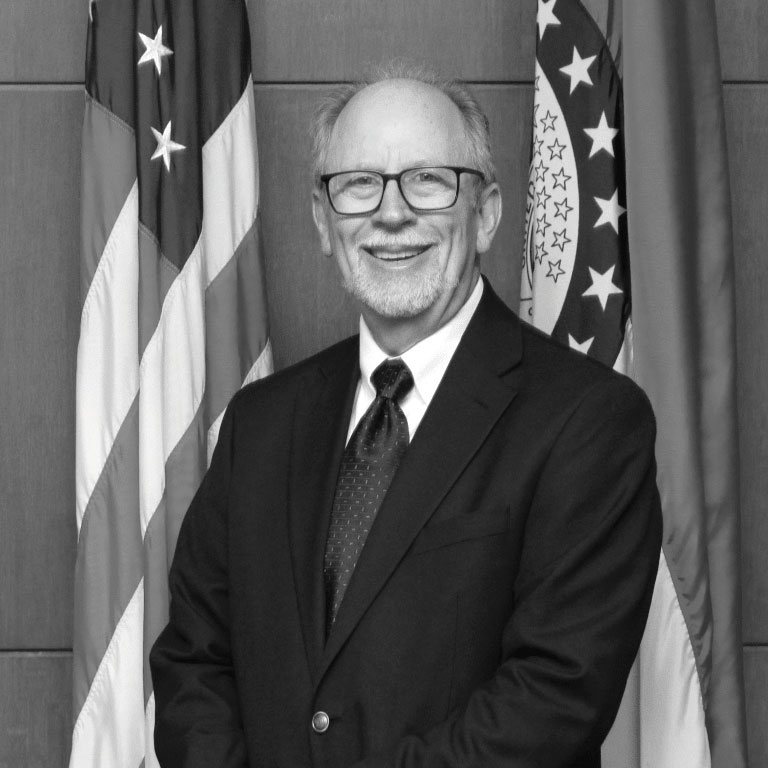

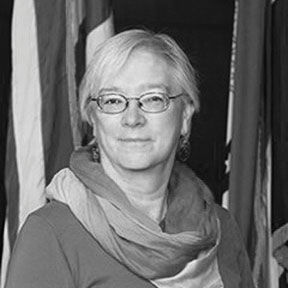

Concerns about privacy and lack of contact with businesses that are not downtown were factors in some “no” votes. Other concerns focused on oversight and policies about how the video footage will and won’t be used.
Geoff said at the time that the Fusus system would not be used to gain access to residential video security systems, and while the software has the capacity for facial recognition, he said local policies would prohibit using that aspect of the technology.
Responding to concerns about the platform being used to target minorities, Geoff said the system would not be used to track gender or race.
“It reduces those investigative stops and incidental contacts that lead to disparity,” he added, noting that some of the opposition was rooted in misinformation related especially to facial recognition and racial and gender identification.
Nick’s motion to ask for an ordinance for the council to consider came in the waning moments of the Feb. 20 council meeting.
“Since we addressed the possible purchasing of Fusus, we’ve had a number of people be in touch with us about reconsideration of the system and purchasing the software,” he told fellow council members, citing the letter from the prosecuting attorney.
Nick’s motion directs City Manager De’Carlon Seewood to bring the council an ordinance “with legal protections for the city’s residents in the use of the Fusus system … as well as protections that ensure non-discrimination in its use, including but not limited to race, gender, ethnicity, sexual orientation, disability, or other classifications protected by law.”
He added, “The ordinance should provide for an effective and reviewable written policy controlling the system.” Both Nick and Ward 2 Councilmember Andrea Waner, who seconded Nick’s motion, voted against purchasing the system in November.
Some of the opposition last fall was based on the belief that the public — specifically minorities and businesses outside the downtown area — were not involved in the discussions about the police department’s Fusus proposal.
Geoff says there has not been additional public education “because the council voted not to fund it.
“I would like to see it as the police chief, but if the city doesn’t have the will or the desire to get the product, it’s not something we’re going to spend manhours to educate about,” he adds. “We’re just waiting to see what the council does.”








